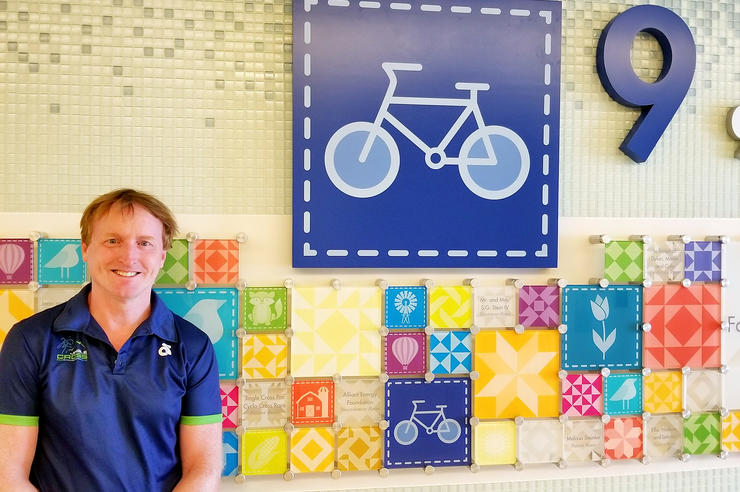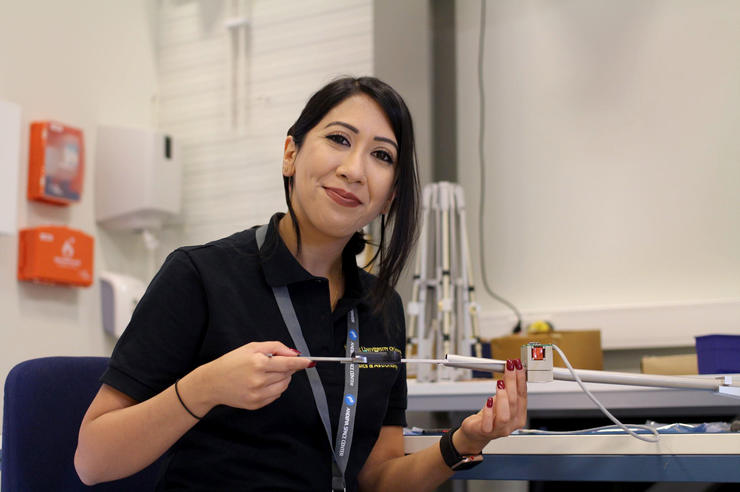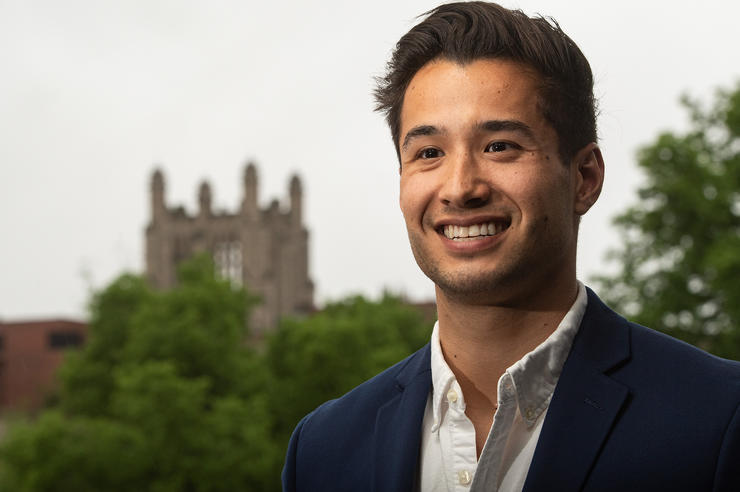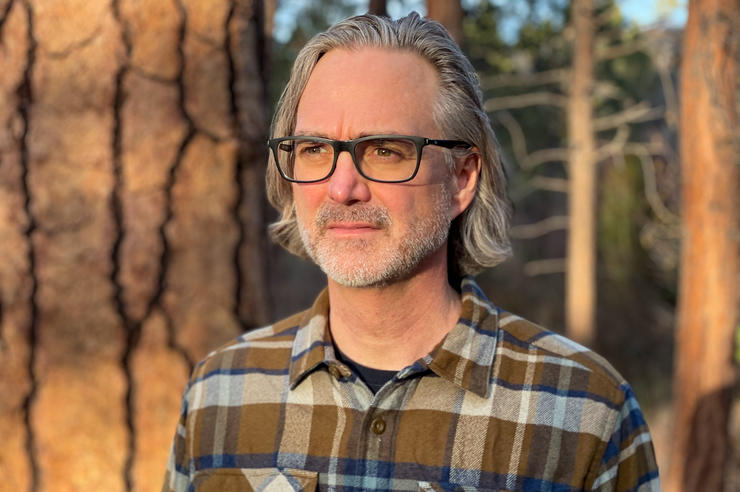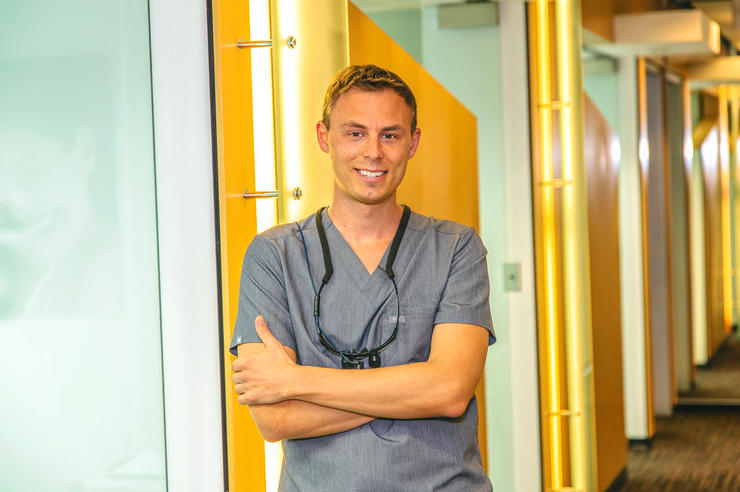Finding help during adverse times
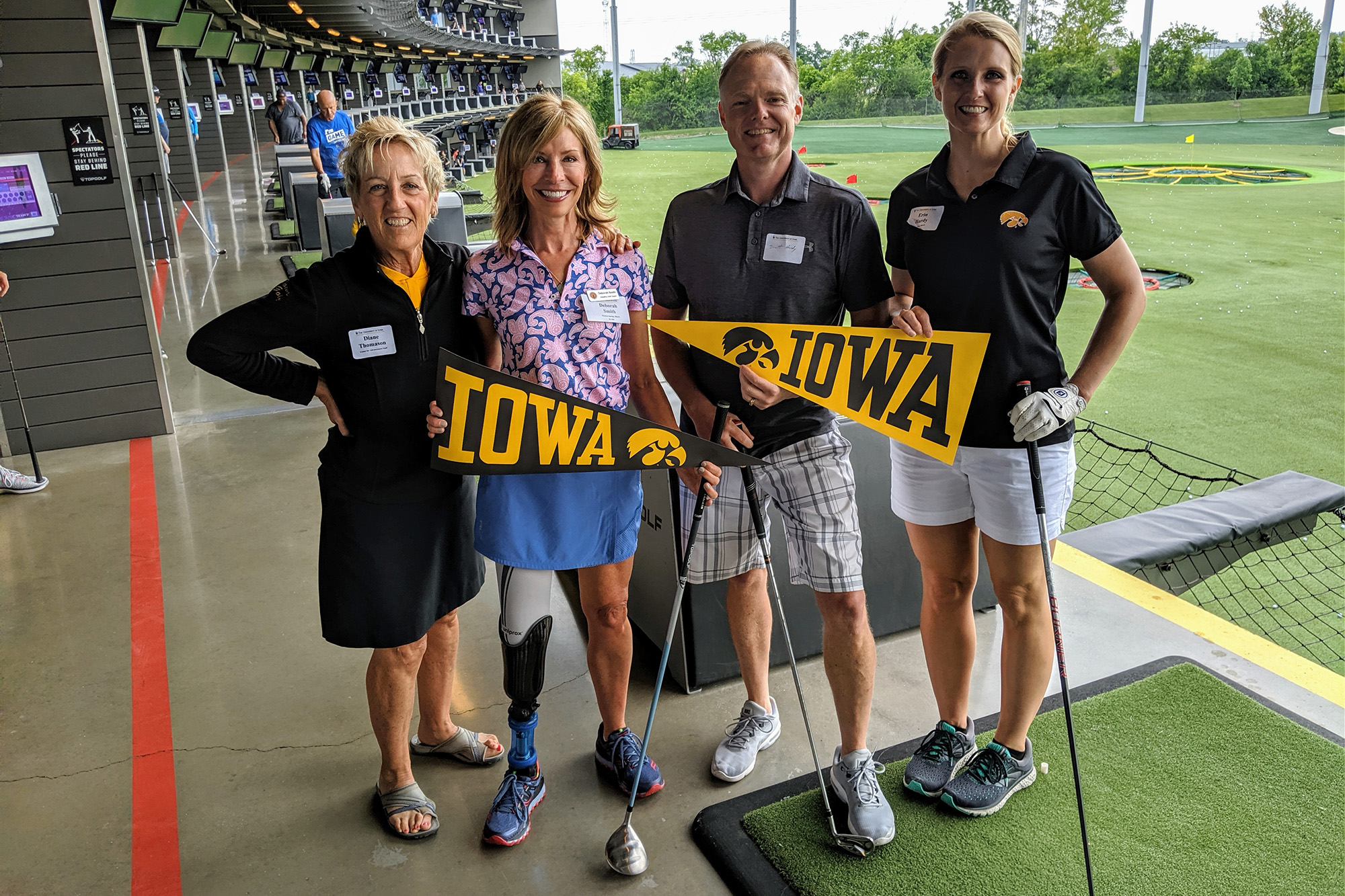
Deborah Smith grew up playing golf but was seldom able to play in the years between her accident and her amputation. She’s now an adaptive golf coach and holds a world ranking for golfers with disabilities. “If I’m out there playing golf, hopefully it helps somebody else feel like they can tackle something difficult in their life,” Smith says.
Deborah Smith’s life changed in the blink of an eye the summer after her first year at the University of Iowa.
Her first time on a motorbike ended in a tragic accident that killed her boyfriend and left Smith with injuries from head to toe, one of the most serious involving her right leg. Her femur was broken and lower leg crushed and almost severed. She was warned she might never walk again without assistive devices.
Smith, who grew up in Rockford, Illinois, was initially in the hospital from June to November 1981. But she says the thought of returning to Iowa City was one of the things that motivated her. When she came back to campus a year later, it was on crutches, her leg in a spatial frame. Smith says Student Disability Services (SDS) was invaluable in making her return as smooth as it could be.
“I never expected to need a resource like that, but I felt so fortunate that it was there when I got back,” Smith says. “I give Iowa a lot of credit for helping me be able to obtain my degree. During a challenging situation, that was something I could hold on to for hope: that I would get my degree and move forward with my life.”
Smith says she’s grateful she chose to go to Iowa. While she was accepted at multiple universities, her visit to Iowa sealed the deal.
“I felt instantly welcomed,” Smith says. “I felt an instant connection with the people and the city.”
SDS facilitates academic accommodations and services for students with disabilities to ensure everyone has equal access to course materials and activities.
Smith says her first year at Iowa was wonderful, meeting people with whom she remains friends with to this day.
When she started her second year, she wasn’t the only member of her family on campus. Her sister had started at Iowa the year Smith had taken off to begin recovering from the accident. They lived together off campus and Smith says she helped tremendously in her transition back to school.
Along with her sister, SDS played a big role, particularly with logistics.
“Iowa City is very hilly, and crutches made it difficult to navigate,” Smith says. “But Student Disability Services made it so that I could register early and map out my classes so that they were as convenient as possible from a time perspective and getting from one place to another on crutches.”
She also credits the office for stepping in to help during particularly challenging times. One of these occurred while studying for finals during the first semester of her third year. She developed a bone infection, causing her healing leg to break and putting her in the hospital over Christmas and New Year’s for yet more surgeries.
SDS coordinated with Smith’s instructors to reschedule her finals for when she returned for spring classes.
“That was a huge help not having to worry and deal with all that while I was in the hospital,” Smith says.
Along with providing resources from a physical standpoint, Smith also appreciated the emotional support she got from SDS.
“It was lovely to know that I had somebody I could talk to and rely on to advocate for me,” Smith says. “Even if they didn’t have a disability, they listened to me and understood the challenges I was facing.”
“I give Iowa a lot of credit for helping me be able to obtain my degree. During a challenging situation, that was something I could hold on to for hope: that I would get my degree and move forward with my life.”
Smith arrived at Iowa planning to be pre-med, but after spending so much time in a hospital, she decided that wasn’t what she wanted to do. She switched her major to psychology and graduated with a BS in 1985. She then started an MFA in metalworking and sculpture before moving to North Carolina with her fiancé.
After 34 years of surgeries and rehab for her leg, Smith could walk, but not run or do many activities she wanted to. Prosthetics had come a long way since her accident in 1981, and in 2015, she decided to have an elective amputation.
“My leg was an obstacle and a prosthetic was an opportunity,” Smith says.
Smith is now a peer mentor with the Shirley Ryan AbilityLab and a mentor and advocate for the Amputee Coalition. Along with taking up competitive sailing, Smith rediscovered her love of golf, a sport she grew up playing but was seldom able to play in the years between her accident and her amputation. She’s now an adaptive golf coach and holds a world ranking for golfers with disabilities.
“If I’m out there playing golf, hopefully it helps somebody else feel like they can tackle something difficult in their life,” Smith says.
Golfing also at times has brought her in contact with fellow Hawkeyes, such as Diane Thomason, former Iowa women’s golf coach and development officer at the University of Iowa Center for Advancement, whom she met in a tournament.

Deborah Smith says she’s grateful she chose to go to Iowa. “I felt instantly welcomed,” she says. “I felt an instant connection with the people and the city.”
The amputation also impacted Smith’s career. At the time of the surgery, she was considering making a change from owning her own business designing and fabricating furniture and interior design. Her surgeon suggested she look into the prosthetics industry.
“I thought he was crazy because I didn’t have any experience in the prosthetics industry,” Smith says. “But I got a position with a startup in California developing really incredible technology for people with lower limb difference and got to travel and learn a lot.”
After a couple years, she started her own consulting business working with small companies bringing new prosthetic technologies to the market.
The motorbike accident has not been the only health challenge Smith has faced during her life. She’s also overcome hepatitis C, which she acquired from a tainted blood transfusion, and three cancer diagnoses, the most recent being last year.
Smith wears a necklace inscribed with a Latin phrase “Solvitur Ambulando,” which broadly translates to, “It is solved by walking the path.”
“Life is not linear,” Smith says. “When I entered college, it didn’t turn out to be what I expected, but you have to trust the journey. I always tell my children that I believe within every challenge lies an opportunity. You have to look for it sometimes and be patient and humble. For example, my amputation transformed my life and opened it up to so many possibilities.”
Smith recently moved back to Rockford to help her parents, but Iowa has long been and remains an important place for her family. Her father used to own a business in Cedar Rapids, which he bought soon after Smith started college, and her own consulting business brings her to Iowa City at times to work with the VA Medical Center. And along with her three younger sisters, her daughter also attended Iowa.
“I didn’t want to be one of those parents who insisted that my children go to the same school I did, so I just told them that I had an incredible college experience and I wanted them to find a place where they felt welcome and connected,” Smith says. “My daughter says that after being in Iowa City for a football game, it felt like the right place for her.”
An internship with Perfect Game in Cedar Rapids turned into a job offer after her daughter graduated. She and her family still live there, giving Smith plenty of reasons to visit Iowa, although she doesn’t need much prodding.
“I’ll take any excuse I can get to go to Iowa,” Smith says.
For more information about Deborah and her work, visit deborahsmith.com.
